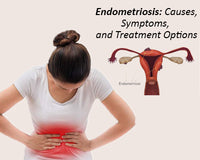How to Improve Egg Quality and Quantity Naturally
Boosting Egg Health for Pregnancy, IVF, PCOS, and Low AMH
- Include lots of fruits, vegetables, whole grains, and lean proteins.
- Avoid processed foods and added sugars.
- Choose a supplement with folic acid, vitamin D, and omega-3s.
- Drink at least eight glasses of water daily.
- Aim for at least 30 minutes of moderate exercise most days.
How Long Does It Take to Improve Egg Quality
Be patient- It takes about 90 days for an egg to mature and be ready for ovulation.
How to Improve Egg Quality After 40
Consult a fertility specialist- Discuss your options and receive personalized advice.
- This antioxidant may help improve egg quality in older women.
Improving Egg Quality During IVF
Add antioxidants to your diet- Consume tomatoes, berries, nuts, and dark leafy greens.
- This treatment may help improve blood flow to the ovaries.
How to Improve Egg Quality with PCOS
Maintain a healthy weight- Losing weight, if needed, can help balance hormones and improve egg quality.
- Inositol may help regulate insulin and improve ovarian function.
How to Improve Egg Quality with Low AMH
Take vitamin D- Adequate levels of vitamin D are linked to better egg quality.
- Consult your doctor before taking DHEA, as it may help improve egg quality.
How to Improve Egg Quality for Pregnancy Naturally
Manage stress- Practice relaxation techniques like yoga, meditation, or deep breathing exercises.
- Aim for no more than 200 mg of caffeine daily.
- Both can negatively impact egg quality.
- Aim for 7-9 hours of sleep per night.
- Track your cycle to better understand your fertility patterns.
- Minimize exposure to harmful chemicals in cleaning products and personal care items.
- A positive mindset can help improve overall health and fertility.






